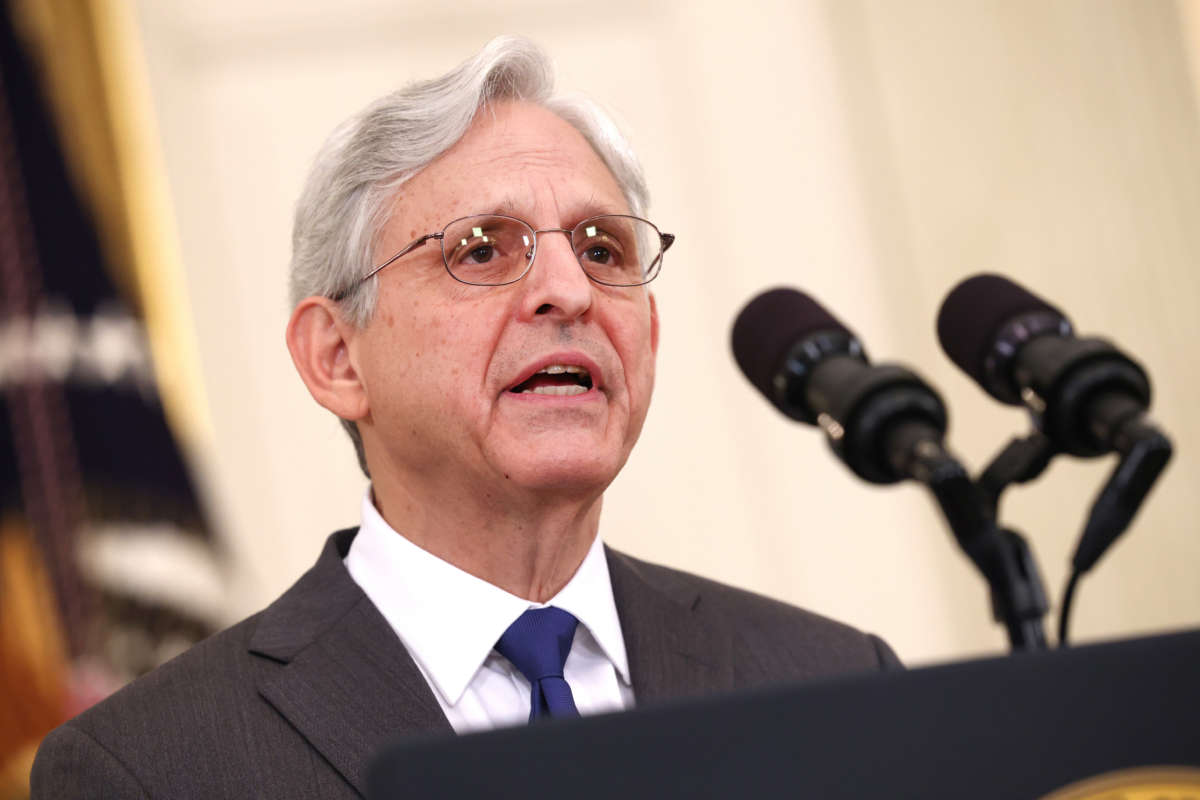Attorney General Merrick Garland has issued new policies on Wednesday designed to emphasize an approach of relative independence the Department of Justice (DOJ) should take with the president and White House staff.
The policies addressed in a memo from the DOJ on the issue of its autonomy from the Oval Office are a stark departure from how the department operated under former President Donald Trump, who frequently sought to shape the direction of the Justice Department.
The new policies create guidelines on limiting communications between DOJ and the West Wing, “unless doing so is important for the performance of the president’s duties and appropriate from a law enforcement perspective,” including issues related to national security and foreign relations. The memo details which figures in the department can discuss certain topics with the White House, including legal opinions, Supreme Court cases, proposed legislation, pardons, and more.
If the White House doesn’t adhere to these policies, the memo adds, DOJ employees are instructed to report their actions to their higher-ups.
“The success of the Department of Justice depends upon the trust of the American people. That trust must be earned every day,” the memo reads. “And we can do so only through our adherence to the longstanding Departmental norms of independence from inappropriate influences, the principled exercise of discretion, and the treatment of like cases alike.”
The memo concludes by emphasizing that the new guidelines “are intended to route communications to the appropriate officials so that the communications can be adequately reviewed and considered, free from the appearance or reality of inappropriate influence.”
The independence of the DOJ from the White House, which has eroded significantly in the past four years, was a key selling point President Joe Biden made in his nominating Garland to become Attorney General.
Garland distinguished himself in that regard during his confirmation process.
“I am not the president’s lawyer, I am the United States’ lawyer,” Garland said in February during Senate testimony. “And I will do everything in my power, which I believe is considerable, to fend off any effort by anyone to make prosecutions or investigations partisan or political in any way.”
Former president Donald Trump frequently pressured the Justice Department to bend to his whims, on matters both trivial and consequential.
For example, Trump reportedly asked advisers in the department if there was any legal recourse for him to take regarding comedians’ jokes about him on television, according to sources with knowledge of his exchanges with officials in the DOJ.
The former president also pressured the department to look into election fraud, including a request to delve into claims that had been largely debunked at the time.
An email from the White House urged the DOJ to reject some states’ election results. “Michigan cannot certify for Biden,” one message read.
Join us in defending the truth before it’s too late
The future of independent journalism is uncertain, and the consequences of losing it are too grave to ignore. To ensure Truthout remains safe, strong, and free, we need to raise $43,000 in the next 6 days. Every dollar raised goes directly toward the costs of producing news you can trust.
Please give what you can — because by supporting us with a tax-deductible donation, you’re not just preserving a source of news, you’re helping to safeguard what’s left of our democracy.
